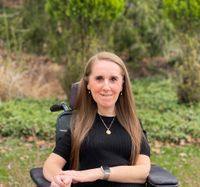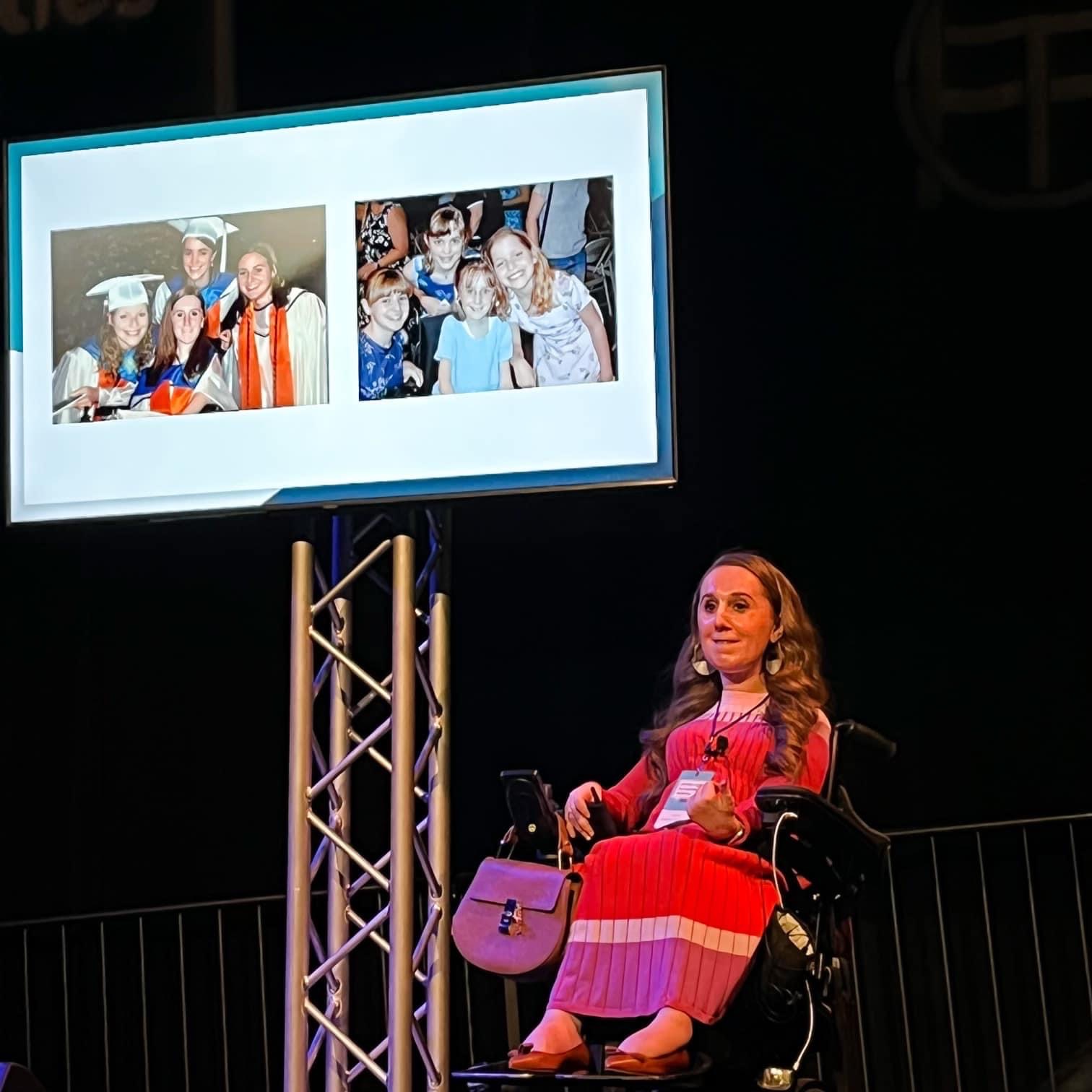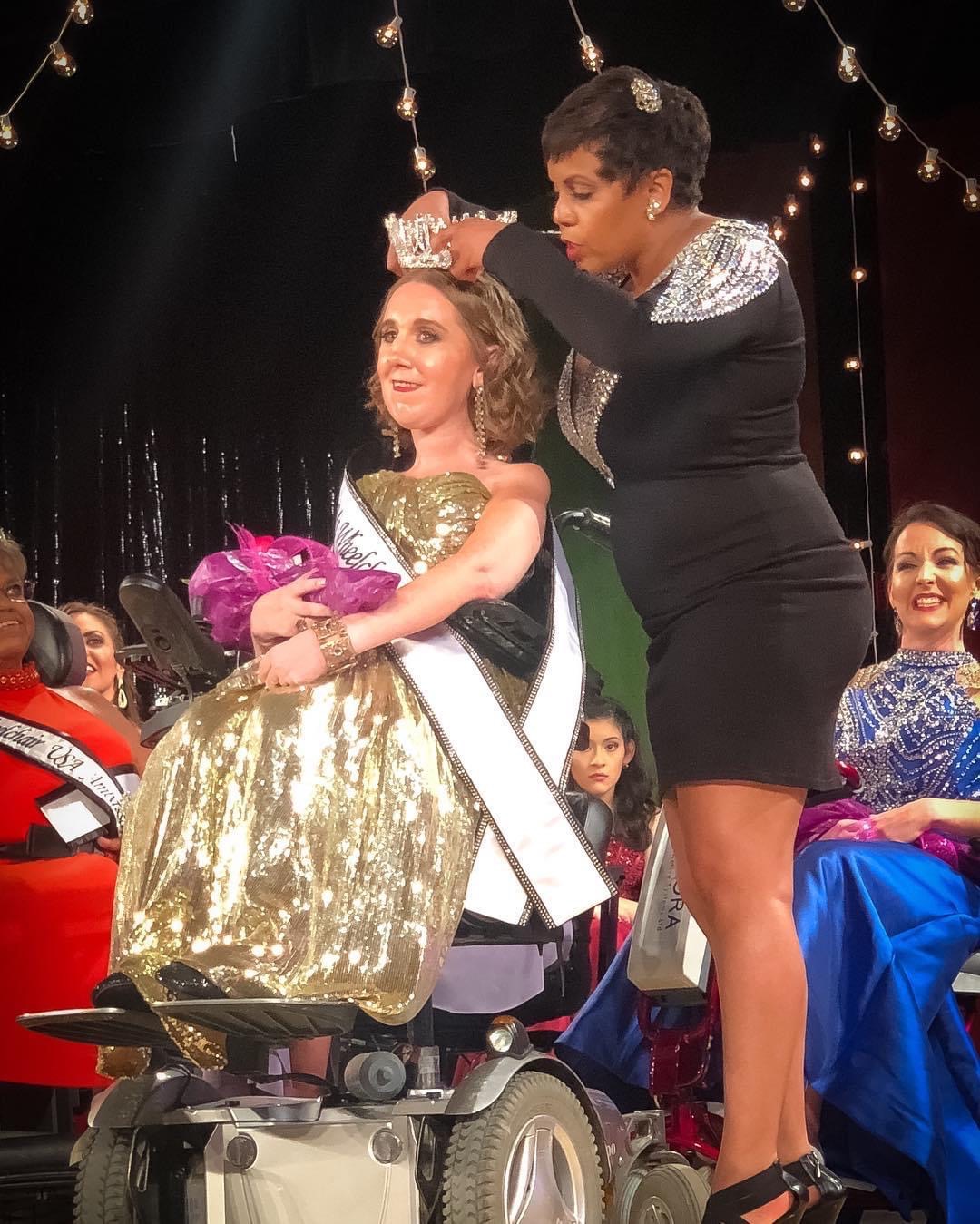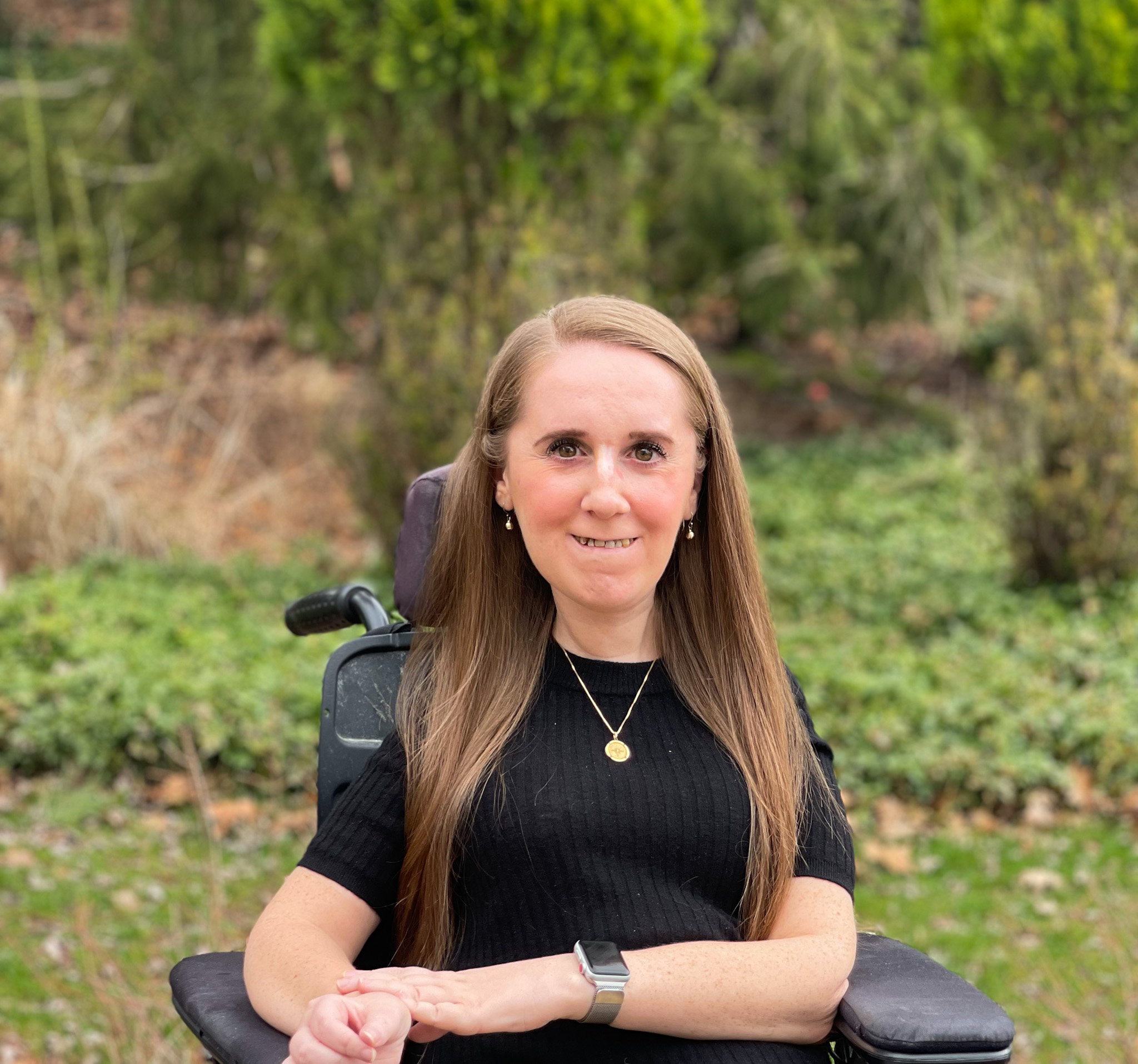Current Gun Control Policies Are Ableist
"Solutions" like active shooter drills and arming more people put the rights of gun owners above the rights of America's most vulnerable, including disabled people like myself.


The advice for what to do in an active shooter situation is always the same: Know the exits ahead of time and run. If you’re out in the open or in a hallway, find a room and secure the door. Hide. But what if you can’t do any of those things?
I have Spinal Muscular Atrophy, a genetic neuromuscular disease, and have used a power wheelchair since I was about two years old. I’ve never been able to walk, and I definitely can’t run. Using a 200-plus pound wheelchair makes it hard to hide, too. And I don’t have the strength to open a door, much less barricade or secure it.
This is the reality that I live with every day, along with tens of millions of other physically disabled people in the United States. We learn, early on, that there is, in actuality, no emergency evacuation plan that includes us. I was in middle school when the Columbine shooting happened, but active shooter drills weren’t implemented in my school district until I had already graduated high school. I often think about what I would’ve done, though—especially based on my experience with fire drills.

The author presenting "The Power of Embracing my Disability" at the Pittsburgh Humanities Festival in March of this year.
Both my middle and high school were multi-story buildings. At my middle school, there were accessible exits on both levels, but at my high school, the only ways out from the second floor were the stairs or the elevator. While I technically did have an evacuation plan in place, it involved waiting in the stairwell to be rescued. In reality, during the drills, I usually just hung out in the classroom with a designated friend, waiting for the drill to be over. I was told, over and over again, not to worry, that in the case of a real fire, someone would pick me up out of my chair and carry me out of the building. What I’d do once I was outside was never really discussed, even though I rely on my chair to function and don’t have a spare. I’d at least be alive.
I often wonder what would have happened if there was actually a fire. Would someone have come to rescue me in the stairwell? In the chaos of a real fire, would anyone remember that I needed to be carried out of the building? Would they injure me, or themselves, in the process?
In the case of an active shooter, so much of this evacuation plan would have been moot. Waiting to be rescued in a stairwell definitely wouldn’t have been an option, because I’d be stuck on a landing, out in the open with absolutely nowhere to hide or go. And hoping that someone can carry me while they’re running for their own life is a terrifying, unrealistic thought. So what would I have done? To this day, I don’t know.
Graduating high school didn’t mean that my worries around safety in the face of gun violence ended. I was in college during the Virginia Tech shootings. I remember following the news and the updates, and wondering how I’d handle that situation on my own campus. Would I be able to get into a classroom in time, or would I be stuck out in a hallway, unable to open a door? Even in my own dorm—if there were a lockdown and we had to shelter-in-place, what would I do if my personal care attendant wasn’t allowed on campus? How long would I be able to hold my pee until I just couldn’t anymore?
Get exclusive access to fashion and beauty trends, hot-off-the-press celebrity news, and more.
Politicians pass off the responsibility of protection onto each person, individually. But that doesn’t work for people like me, who cannot protect themselves.
Even now, as a 33-year-old woman, I worry. I worry when I’m at a movie theater with friends, or shopping at the mall, or at a concert. I look for the exits, but I worry that it won’t matter, because I won’t be able to open the door. I worry that in the chaos that ensues, an accessible exit will be blocked. Most of all, I worry that despite my best efforts, I won’t be able to be fast enough, that in a sea of people who are running, I’ll be too slow. No amount of preparation on my part can change that. I live with the fear that in the case of an active shooter situation, there’s really nothing I can do to protect myself.
As heavy as they are, my worries are valid, because after each and every mass shooting, the politicians’ response is the same: Calls for common-sense gun reform measures that would reduce the frequency and severity of mass shootings—protecting everyone—are always countered by a firm desire on the right to protect gun owners. Politicians suggest adding more active shooter drills, heavier security, even arming more people instead of less. After the recent shooting in Uvalde, Texas, the state’s Attorney General, Ken Paxton, recommended arming teachers as the “best answer” for preventing tragedies like that one. Rather than pass common-sense gun reform, they pass off the responsibility of protection onto each person, individually. But that doesn’t work for people like me, and other disabled people, who cannot protect themselves.

The author when she was crowned Miss Wheelchair USA. She focused her reign on disability inclusion.
Numerous senators on the left, including Senator Chris Murphy (D-CT), Senator Richard Blumenthal (D-CT), Senator Tim Kaine (D-VA), and more, have discussed the need to pass preventative measures like increased background checks and bans on assault rifles. But they’re continually met with opposition, like from Senator Mitch McConnell (R-KY), who has voted against increased background checks in the past, and from Senator Marsha Blackburn (R-TN), who called for enhanced physical security at our schools. With only our current policies in place, I worry every single day about what I’d do in the case of a shooting—because I don’t feel like there are laws on the books that keep me safe.
Right now, it feels like protecting my life and the lives of disabled Americans is less important than protecting someone else’s right to own a gun. I don’t want to feel like this anymore. I want America to be better about protecting our most vulnerable. I want us to pass common-sense gun reform now.
Heather Tomko is a writer, blogger, researcher, and disability activist. She is an alumna of Carnegie Mellon University and the University of Pittsburgh. As a woman with Spinal Muscular Atrophy, a neuromuscular disease, Heather is passionate about disability advocacy and access. She runs a lifestyle blog, The Heather Report, where she shares about her life as a disabled woman. Heather was Ms. Wheelchair USA 2018, and spent her reign advocating for disability inclusion. In her free time, she’s either watching TV, reading, scrolling Instagram, or cuddling with her Yorkie, Lily.
